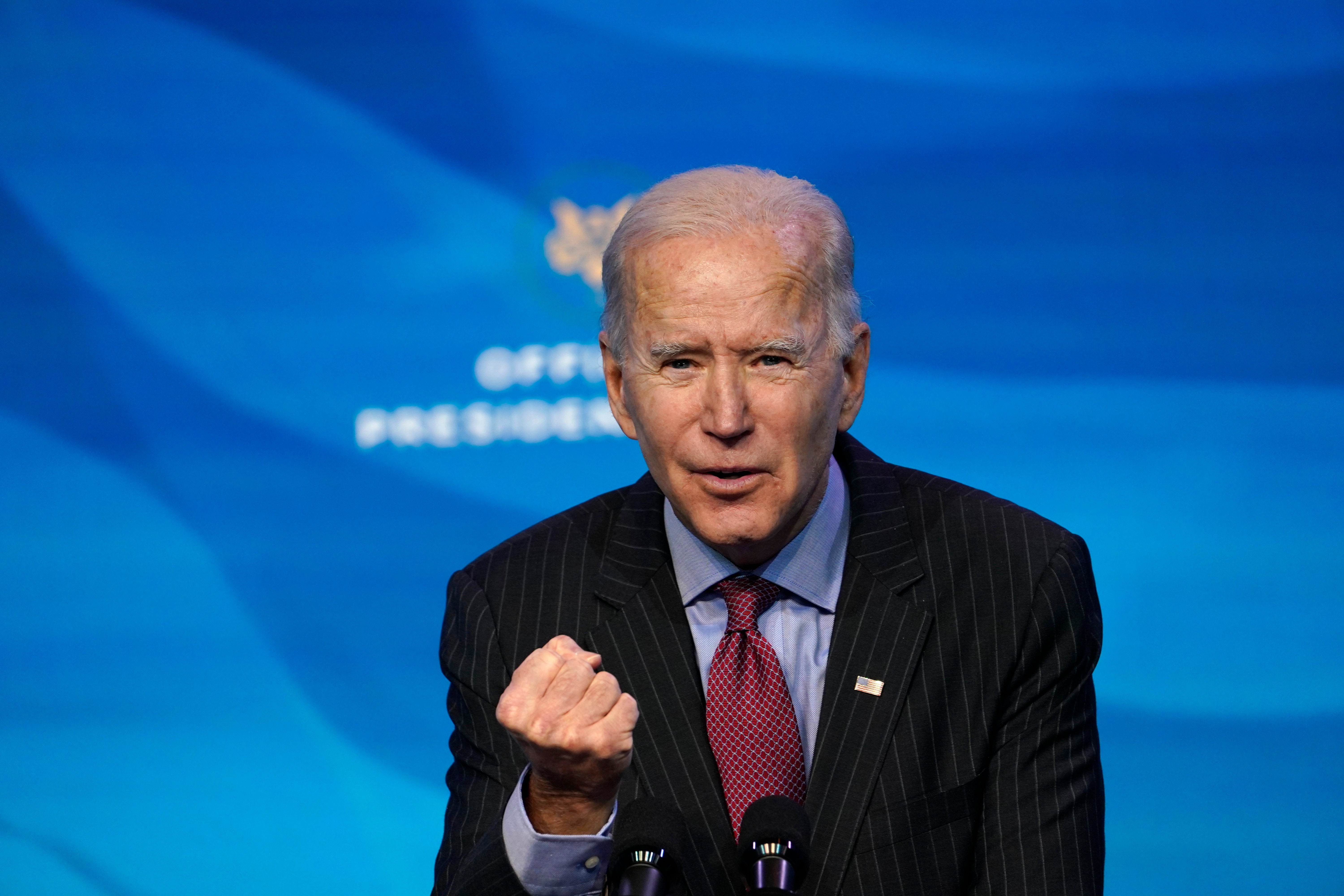What’s in store for the US economy when Joe Biden enters the White House?
Amid a boom in financial markets, there are still some clouds on the horizon, writes Hamish McRae


US politics may be catastrophic, but US finance is triumphant. The juxtaposition of Congress being trashed and US financial markets hitting a new high was stark evidence that whatever happens to its politics, big money is still backing the business of America.
The flood of money that hit the markets and elevated Elon Musk, founder of Tesla, to the status of the country’s richest person, is a vote of confidence in its economy. So will the boom continue under its new president, Joe Biden?
In the short-term probably yes. There are a couple of specific reasons for that. One is an even looser fiscal policy. Now that the Democrats have won control of both houses of Congress, it will be easier for the new administration to get a further fiscal stimulus through. They have just passed a $935bn package, and it looks as though there will be at least another $1,400bn to come. This is big, even in terms of the $22 trillion US economy.
Short-term, too, there will be more monetary support. The Federal Reserve will keep the money taps open. How long? Well, “quite some time” was the comment by one board member, the president of the Federal Bank of Cleveland, Loretta Mester. Her counterpart at the Federal Reserve Bank of Chicago, Charles Evans, said the same. Policy “will have to be accommodative for quite a while”.
The message is clear and deliberate. The Fed will not tighten monetary policy any time soon, and presumably much later than it has done in previous cycles. We all knew that short-term it would continue to print the dollars. We are now steered towards expecting that this short-term could go on for a couple of years.
There is an obvious third element which is not really to do with the new White House administration’s policy as such but rather to do with the timing of the recovery. It looks as though the US will be towards the front of the pack in rolling out the vaccines – behind Israel of course and maybe behind the UK, but ahead of Europe.
So the pathway back to normal, whatever that is, will be very clear by Easter. Markets typically look three to six months ahead. The US economy is a big beast, and it is emerging from the chaos in pretty good shape.
So what could go wrong for the Biden administration? There are at least three clouds on the horizon.
One is the dollar. There has been a widespread expectation that it would fall this year. Back in November a report by Citibank said that it could fall by up to 20 per cent. More recently, there seems to have been some reconsideration: for example, OMFIF has cautioned against this.
Markets only work when there is a variety of views, but what is worth noting is that the dollar has been creeping upwards on its trade-weighted index since 2012 and that this is a long bull market. While it is not yet grossly overvalued yet, at some stage it will fall back. While that would actually give a boost top the economy, it would also increase import prices and hence inflation. The Fed could tolerate higher inflation for a while, but I am not sure the markets would.
The second is the status of the high-tech giants. This is simply to observe that there is an inevitable tension between their sky-high valuations and the threats they face as a result of their monopoly power. One of the early issues the Biden administration will have to face is what to do about this sector.
Is it in its strategic interest to support the giants, given that they are an area where the US has a key advantage over its rival, China? Or should domestic considerations, such as consumer protection, override external ones?
Besides, the absurd valuations now put on high-tech companies, including Tesla, will at some stage reverse themselves. Alas, we cannot know when.
Third, less noticed are the worries of small businesses in the US, in particular over regulation. Big business can cope, for it can hire people to navigate round regulation. Indeed, it gives large enterprises a competitive advantage over small ones, which lack those resources. The US government’s Small Business Administration is launching the next stage of its Paycheck Protection Programme this Monday, which is fine.
However, businesses are concerned that some of the deregulation brought in by the Trump administration might be reversed. It is not for Britons to take sides on this issue. The point is simply that Main Street matters, and if it is worried, those worries should be listened to.
This cannot have been the economic legacy that Biden expected or would have welcomed. But he will be arriving in the White House against the background of a boom in financial markets. That carries a lot of hopes for the months ahead.
Join our commenting forum
Join thought-provoking conversations, follow other Independent readers and see their replies
Comments
Bookmark popover
Removed from bookmarks